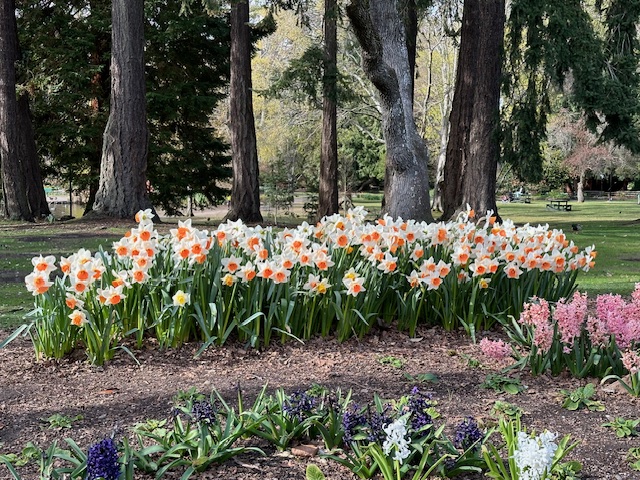
by pam | Apr 4, 2024 | Benefits of being in nature, Celebrating, Conscious Living, Health & Wellbeing, Life Transitions
Aw! How I love Spring! The crocus’ appearing. Buds opening on the trees. Cherry blossoms lining the streets. Daffodils smiling and dancing in the breeze. All these signs from nature to me signify an opportunity for reflection, renewal, and for new beginnings.
We typically do spring cleaning this time of year. There is something so therapeutic about going through closets and your office and purging those things you no longer need, including clothes you’ve outgrown or that are no longer your style. Gifting them to a thrift shop or charity are a great way to fill yourself up.
How about thinking about spring cleaning “from the inside out”? Here are a few questions to reflect on and journal about.
What truly brings me joy? (e.g. activities, time in nature)
Who truly brings me joy?
What project, position, volunteer work no longer serves me?
What relationship(s) am I clinging to that no longer serve(s) me? Which friends do I really enjoy spending time with? Are there people I have drifted away from who I would like to reconnect with? Are there others who are no longer as close friends as before, yet who I still want in my life?
What steps am I committed to take to let go of that relationship, project, position that no longer serves me/brings me joy?
What new areas of focus do I want in my life? What new project do I crave to start? Do I want to take a painting class? Start writing that new book?
By going inside and listening to what your heart and gut tell you, you will know the answers to the questions above.
I encourage you to take some time to reflect on what really brings you joy. What things or people are you ready to let go of? And what new passions do you want to explore or focus on?
For me it is my third book which is an historical fiction novel with Afghanistan as the backdrop. My intention in writing the book is dispel some myths about Afghanistan, Afghans and Islam. I have a heartfelt connection to this country and its people having lived and worked there for a significant amount of time. I feel the pain of what is currently happening in the country, knowing that at one time Kabul was a cosmopolitan city which was like a giant garden and a place where women wore mini-skirts (Would you believe!).
I welcome your thoughts and comments below. There is so much we can learn from each another.
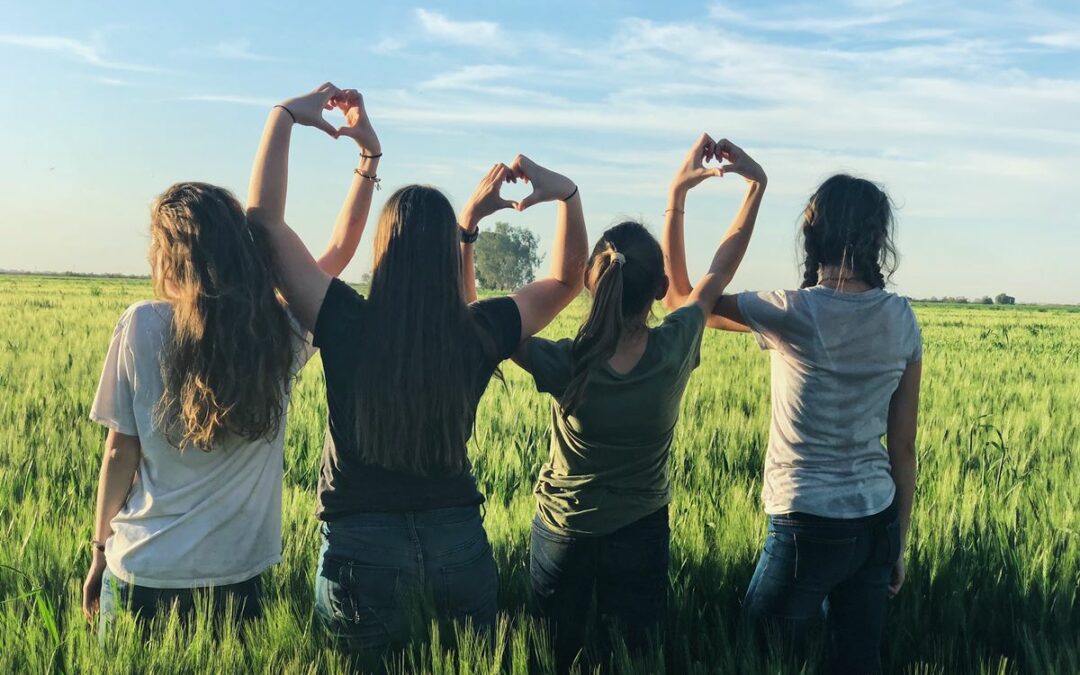
by pam | Jun 13, 2023 | Benefits of being in nature, Collaboration, Feminine Leadership, Health & Wellbeing
It was about six weeks into the pandemic; a scary and uncertain time. Then came the news of air pollution levels over China drastically decreasing and dolphins returning to swim in the canals of Venice! Two powerful indicators of nature showing us how she can heal herself and ways we can contribute to healing the planet.
I’ve been interested in nature since a child and feel blessed to now live 10 minutes’ walk from the ocean and about 10 minutes from a beautiful park. That said I’ve never studied much about the environment, sustainability, or regenerative agriculture until recently. These powerful examples from nature encouraged me to want to learn more and find out how I could contribute to improving the health of the planet.
I run a national, member-based non-profit Female Wave of Change Canada. We are part of a global social movement, Female Wave of Change , now in over 40 countries around the globe. We believe feminine leadership holds the key to creating a better world; a more conscious, equitable, just, sustainable, and peaceful one. We work in five pillar areas: education, environment, economy, health, and humanity. Inspired by these two powerful examples from nature, I put a call out to members in late June of 2021 to invite them to be part of a team to co-create a project related to the environment. The caveat was they needed to have an interest in and/or be passionate about the environment. They didn’t need to be a subject matter expert and if they were that was a bonus. Five members responded to the “call”, one being a subject matter expert. In less than six months via zoom, we co-created the Mother Earth Ambassador Program[1], an experiential, outdoor education program to teach girls ages 9 to 12 about Mother Earth, the Mother Tree, and how to become Ambassadors for Mother Earth in their homes, schools, and communities.
We reviewed a number of articles and books, as well as videos and programs on nature, the environment, and sustainability and decided to focus on the forest. We were strongly influenced by the work of Suzanne Simard, a forest ecologist at the University of British Columbia and her research on the Mother Tree. She discovered that there are hub trees in the forest and called them Mother Trees as they display many characteristics of nurturing mothers such as when a tree is experiencing unhealthy conditions such as insufficient nutrients, the Mother Tree communicates through the mycorrhizal fungi in the soil to other trees to support young and unhealthy trees even if they are of another species. The Mother Tree exhibits qualities of feminine leadership our organization promotes such as inclusiveness, collaboration, and creativity to name a few.
Girls aged 9 to 12 are the leaders of the future and teaching them about the Mother Tree, Mother Nature and how to become Ambassadors strengthens their confidence to make wise choices during a pivotal time in their lives. During the program, each girl develops a personalized action plan to create positive change for the earth in her home, school and/or community.
We are currently accepting applications for a cohort of eight girls starting in Metchosin on Vancouver Island on September 23 running for eight Saturdays until November 18. The program is being facilitated by Sarah Wade a certified elementary and middle school teacher with much experience teaching outdoor education including living and working with indigenous elders and youth in Nunavut.
We have a big vision for the program. We plan to develop partnerships with organizations who serve girls ages 9 to 12 to deliver the program across Canada and beyond. To support this vision, we need funds to create a train-the-trainer program that will augment the detailed facilitator’s guide and overall program design we developed with the support of a gifted curriculum development consultant Tiana Fech.
If this program “strikes a chord” with you, there are three ways you may support it:
- Share the program details with families you know with girls aged 9 to 12 who live in the Greater Victoria, BC area who you think might be a good fit, and encourage them to consider applying – https://fwoccanada.com/mother-earth-ambassador-program/
- Donate or become a sponsor for the program (Note that we receive no funds from the parent organization and all of our programs and initiatives are supported by memberships, donations, and sponsors) – https://fwoccanada.com/donate/
- Contact info@fwoccanada.com if you are aware of or belong to an organization who would be interested in learning more about delivering this program in your/their community.
[1] I would like to acknowledge Dave Best, CEO, Vanilla Blossom (sponsor), Tiana Fech, those members of FWOCC who donated to the initiative and the 5 members of the team who “birthed” the Mother Earth Ambassador Program with me: Rita Fromholt, Laureen Card, Donna Fairhurst, Charmaine Hammond, and Carolyn Pisani.
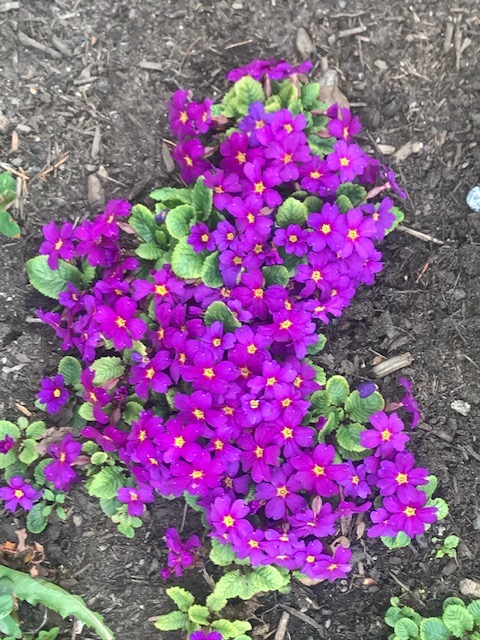
by pam | Mar 26, 2023 | Benefits of being in nature, Embracing Change, Health & Wellbeing, Life Transitions
In the northern hemisphere where I live, spring is a time of reawakening and rebirth. After a long cold winter where the flowers are deep in the ground and the bears are hibernating, spring encourages us to pause, reflect and reawaken to new possibilities. It is a time when buds start to appear on trees, and beautiful daffodils and tulips burst forth to remind us to notice the beauty in our lives and to celebrate new beginnings.
What new beginnings are you celebrating? What new project do you feel brewing within and how are you wanting to share it with the world? Is it a new book, a new offering, a new partnership? How does it make you feel? Get in touch with those feelings and express them in your own way. That could be putting on your best tunes and dancing in your living room, going out for a walk by the ocean or in a nearby park. It could be painting, drawing, or journalling about what’s in your heart. It could be meeting a friend for lunch or a beverage and sharing the new project or partnership you’re excited about.
When you reawaken to new possibilities, how do you feel? You may be noticing you are low energy, and you need to take some time to refill your tank after a long, cold winter. You may be feeling something like a small shoot starting to grow within your heart that you’re not yet ready to share as it is still growing and taking shape.
I encourage you to take some time for you. Go for a walk in nature and notice the beauty that surrounds you. Listen to the birds and notice various signs of spring. Identify five things you are grateful for and really feel that gratefulness in your body. Another activity that is therapeutic and helpful to do at this time of year is to cull – go through your closet and identify clothes that no longer fit or suit your style. Donate these clothes to a charity you care about. If you’re a paper person like me, go through your filing cabinet and shred or burn documents you no longer need.
Perhaps imagine yourself as one of the spring flowers you most appreciate. For me that is the daffodils who remind me of fun, playfulness, and dancing with life.
How are you choosing to dance with life and reawaken to the new possibilities and magic of spring? I welcome your thoughts and comments below.
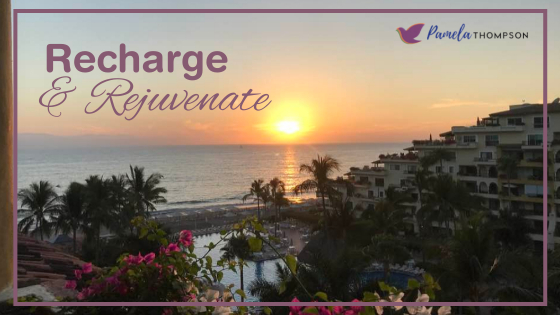
by pam | Feb 21, 2023 | Benefits of being in nature, Health & Wellbeing, High Achieving Women, Preventing Burnout, Self-Care
I so needed this vacation. My mind was buzzing, and I wanted to escape from the day-to-day responsibilities, to be in the warmth, to speak Spanish, to have little or no structure in each day, to swim and do lengths in the pool.
When I glide through the water I feel such freedom, such strength, such focus on the rhythm of my breath as I do the front crawl for 50, 70 or more lengths. It feels so good! Perhaps I was part fish in a previous life!?
I sit outside in front of our casita in a pueblo magico in Mexico. It is a beautiful fishing village that has a special vibe. The beach is long and wide, and each evening people gather to watch the sun set. When the glowing orb drops into the sea everyone claps. It’s quite an experience. The locals are a mix of ex-pats and Mexicans. There are more and more young people visiting the town and there are also a number of older hippies from North America who live here half the year. It is indeed a special place. I feel like I belong here. My Spanish has come back after about 3 years of not speaking. It flows easily off my tongue until every now and again when I forget a word and have to ask what it is in Spanish.
I love Latin culture. I lived in Colombia in the late 1980s in a small town of 250 houses about 3.5 hours north of Bogota. When I arrived there, I felt like I’d come home. Curious! I gave myself three months to learn Spanish and I did it! Living in a pueblo where hardly anyone speaks English, if you are someone who loves to connect with and communicate with others, is an incentive to learn a language quickly. How fortunate I was to have had that experience!
Over to you, how do you recharge and rejuvenate? What is your favorite place/activity/type of vacation? I welcome your comments below.
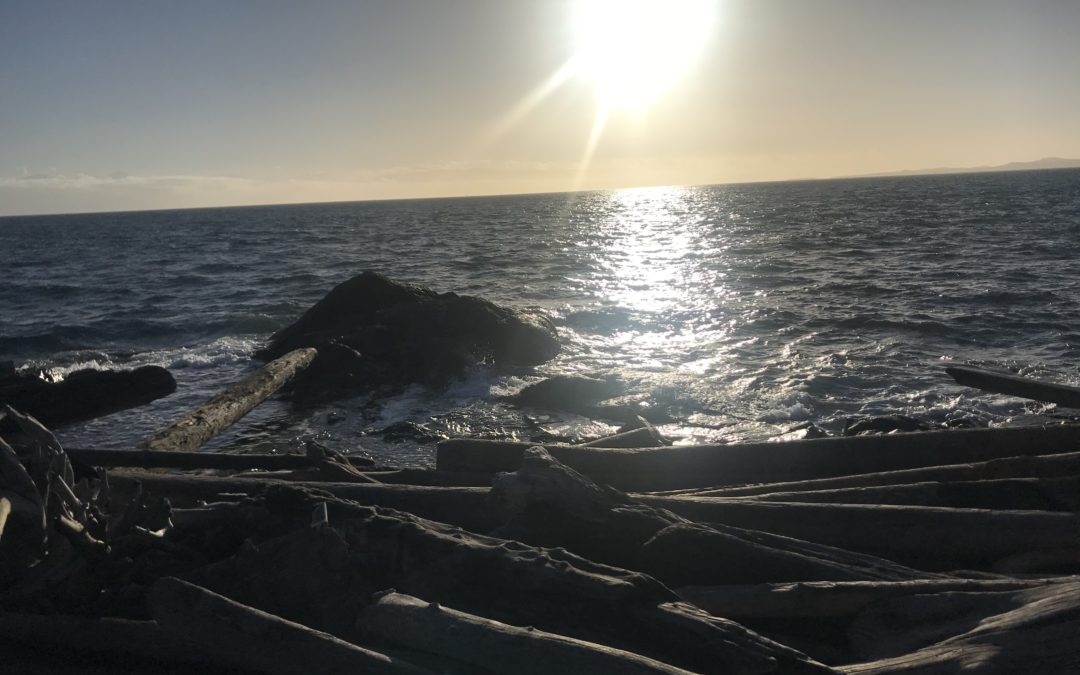
by pam | Jan 20, 2021 | Benefits of being in nature, Change, Uncertainty
How has 2021 started for you?
Do you feel the past few weeks have been a blur? Did you hit the ground running and feel like you haven’t stopped?
Or, perhaps you started the year more tentatively, preferring to move slowly, doing what you know and feel comfortable with. Wanting all of the uncertainty, stress and sadness associated with 2020 to disappear.
It’s interesting how each of us deal with uncertainty. Some of us stay busy and don’t take time to slow down so we can’t think too much. Others take it slow, really feel their emotions and proceed cautiously. Which category do you fit into? Or are you somewhere in between; some days moving at top speed and others feeling emotional and moving more slowly?
I’m one of the folks who “hit the ground running” and feel like I’ve “had my roller blades on” since January 4th.
Yesterday my body felt tired and stressed. I felt “wound up”. I finally listened and went for a walk in nature. I walked to the ocean’s edge and lay on a rock, soaking up the winter sun and feeling the tension in my body melt away into the rock, or so it seemed.
“Nature connects me with my soul.” That’s part of a faith statement I developed at a personal growth workshop years ago. Nature is such a great teacher and healer. I’m amazed when I walk by water or in a park or forest how relaxed I begin to feel. My stress just falls away. Do you relate?
There is a lot of evidence regarding the healing benefits of nature. This was brought home to us during COVID-19 when we saw air and water pollution levels go down within the first 6 weeks of lock-down.
How are you dealing with this ongoing pandemic? Are you able to get out in nature? If so, I encourage it and when you’re there, notice how you feel. Perhaps journal about it afterward. After the year we’ve all had, it’s important to be kind to our bodies.
Thinking of you and sending much love and healing energy your way!
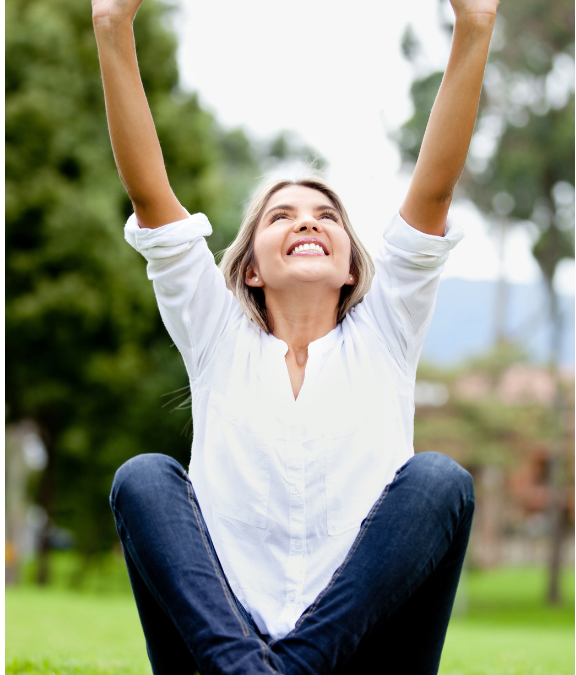
by PT-clc | Nov 20, 2018 | Benefits of being in nature, Conscious Living, Health & Wellbeing, Self-Care, Stress Management
Introduction to the Experiment
If you’ve been following previous posts you’ll know that I “pressed the pause button” on my business in late June of this year. What I mean by this is I consciously decided to take some time off even though I was healthy, but was feeling a bit tired and uninspired. You may check out this post – https://pamela-thompson.com/creating-space-the-how-and-why/ – to learn more about how I consciously created more space in my life.
I’m excited to share that within the past 2 weeks, I’ve become inspired, feel re-energized and a new direction for my business has surfaced. I’ve realized that I want to integrate elements of my consulting business with my coaching business and to serve heart-centered leaders and changemakers. Stay tuned for more details to come!
The intention of this post is to share the lessons learned from my creating space “experiment”. This past few months have been one of only a couple of times in my life when I have consciously decided to stop working, to spend more time “being” and to focus on “getting out of my head” and “into my body”. Perhaps you relate?
Lessons Learned
One of my friends recently referred to the past 4.5 months as a “fallow” period in my life. A time similar to winter (in the northern hemisphere) when crops and perennial plants go underground and it looks like they are dead and nothing is happening. What really is occurring is that they are in hibernation and things are happening but they aren’t evident. I recently heard that grizzly bears give birth while in hibernation. How cool is that! I feel like even though I wasn’t actively reflecting and wondering what to do next during this period, that things were indeed happening. Similar to a new green shoot pushing itself out of the ground, I feel like the new ideas for my work organically emerged.
So what were the key lessons I learned from this conscious “fallow” period?
- Spending time in nature (almost daily) was an incredible gift. Now if I don’t go for a walk every day to a nearby park or the ocean for at least 20 to 30 minutes, I feel like I need and haven’t gotten my nature “hit”. I don’t feel as energized, joyful and as calm as when I immerse myself in nature daily.
- I now feel more in touch with my body. I’ve changed my diet and have a lot less indigestion than before my “sabbatical”.
- I feel more relaxed and that is a state I can access more easily than before.
- I am more joyful and playful and feel more connected to my “inner child”.
- I feel more present in my conversations with others.
- I feel more sensitive to those around me and have to be careful not to take on their stress or negative energy
- I feel like I’m letting go of some old patterns that no longer serve me; e.g. trying to change someone I care about when they demonstrate unhealthy practices.
- I feel much gratitude for having been able to give myself this gift.
I realize that we can’t all take 4.5 months off every time we’re feeling tired and uninspired. However, I do believe that consciously creating space in our lives is therapeutic, reduces stress and stimulates our creativity, not to mention the positive benefits it has on our relationships.
I’d love to hear from you about strategies you’ve found helpful to create space and if you’ve done something similar to my recent experiment, what you discovered. Feel free to comment below and to share this with others.





